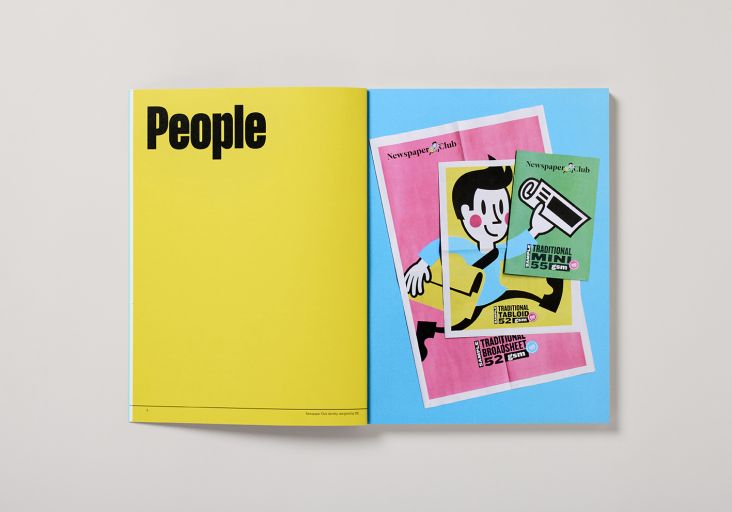5 rookie mistakes freelancers make that damage a reputation and chance of success
In any business, a reputation should be cherished and protected. Your livelihood depends on it. But many freelancers in the creative industries can be prone to making mistakes that damage their profile, which not only puts off new clients but can also make you lose your competitive edge. We take a closer look at some of these common hiccups, so you can avoid tripping up in future.

Image licensed via Adobe Stock
PR or public relations is about reputation. It's the result of what you do, what you say and what others say about you. PR is part of your marketing efforts and aims to protect and enhance your reputation, so you can attract and win new business, forge helpful connections and ultimately survive and grow.
You can successfully manage your PR in many ways: from attending networking events and being someone people love to chat with to making friends with journalists and securing a feature in your favourite design magazine. Equally, you can make many rookie mistakes, too, that damage how people see you. And that's not good for business.
You might be surprised to learn what those mistakes are. We'll share five of the most common mishaps and offer advice to boost your reputation. (Graduates and job seekers, take note! The following advice applies to you, too!)
1. Your Twitter feed is full of negativity
Any hint of attacking others, re-tweeting anger-fuelled updates or self-pitying posts, and let's be honest, it's not exactly going to present the best first impression. But you'd be surprised how many freelancers we see doing exactly this. Personally, whenever I'm looking to hire or work with someone, I tend to check out their social media before anything else. And if it's negative? Hey, I'm human. I go elsewhere.
The solution
Ever heard of the saying, What goes around, comes around? It's true what they say; if you put negativity into the universe, you'll get it back tenfold. Flip this on its head and be positive. It's as simple as that. Share other people's work and say why you love it. Reach out to fellow freelancers and ask how they're doing. Post meaningful updates that others might find useful.
Hey, it's okay to discuss news or politics on social media as long as you're doing so calmly and rationally. However, I believe these heavier themes are best left to private discussions with friends who enjoy nuanced debate. Besides, in today's climate, many people feel exhausted from the ongoing depressing news cycle of the last few years. Do they really want to see more of that? The same goes for personal woes: phone a friend rather than share your personal life online; you'll get a much more valuable experience chatting with someone who knows and cares about you.
2. You're sharing too many personal photographs
Images of fun nights out with friends, gorgeous selfies and pictures of happy babies are lovely, but are they right for a public forum? Platforms like Instagram and Facebook have normalised sharing private moments; that doesn't mean it's the right thing to do. It might give the wrong impression. For instance, too many selfies might make you look narcissistic – not to everyone (I personally like seeing people's faces) but maybe to others. You have to ask yourself, does this present a professional image?
The solution
No one's saying ditch personal updates forever. Instead, perhaps tone down what and how much you share. It's lovely to see the occasional travel or family pics; sure, why not! But what's the purpose of your Instagram if you're linking it to your freelancing business? Potential clients will prefer to see your work and inspirations. It should be a credible reaffirmation of what they've seen on your portfolio or website.
A little hint of personal life does no harm, as it shows personality and makes you approachable. Just be prepared to really scrutinise what you put out there, always keeping in mind new clients and how they might perceive you. But if you just can't stop sharing all the good stuff, start a separate Instagram account that's private and for close family and friends only.
3. You unnecessarily burn bridges or miss perfect opportunities
Whether it's a client, rival freelancer or supplier, everyone has the potential to be a great contact for your network, now and in future. But you'd be surprised how many creatives fail to understand this simple premise, perhaps making enemies or ignoring others they don't see as useful in what is often a very tiny pond.
The solution
Be friends with everyone, no matter what. A marketing manager leaving your client's team might suddenly seem irrelevant, but they're moving somewhere else, which means a potential new relationship or client. And that junior executive you don't think matters now? They will get promoted one day. Always be nice to people "above and below" you on the ladder, and know that the creative industries can often be quite small and connected.
It's not easy managing our reputation. But with a few tweaks to how you present yourself online, what you share and how you conduct yourself, you'll reap the rewards.
4. You underestimate the power of kindness amongst your peers
Why would you share work with your competition? Or recommend their services to clients you haven't the capacity to work for? You might think keeping your cards close to your chest is sensible (and, in some cases, it is), but you could also be closing yourself off to a world of opportunity.
The solution
Your reputation extends beyond clients and brands. You have to be someone other freelancers like, too. That means giving people a chance and being kind and generous to the creative community. You might get your fingers burnt occasionally, but I always think it's better to trust on merit. Give other freelancers the benefit of the doubt and build a local network that includes people as kind as you, sharing the work and supporting you throughout.
5. You badmouth other freelancers in the community
It's human nature to form cliques and tribes. It's why any one of us can fall foul of bitching about others, particularly when faced with such a competitive industry. Alas, it's true what our mothers said: everything always comes back in the end – which isn't great for anyone's reputation.
The solution
Sometimes, a good moan about others is cathartic. Just ensure you keep it amongst hugely trusted circles if you can't resist. Otherwise, always seek to find the silver lining of said person. Focus on their strengths. Remember, they're human and therefore flawed, just like the rest of us. Cut them a break, much as you would yourself.
But if it's a big issue with someone you know, it may be better to discuss it with them face-to-face and tell them how you feel. We never know what's going on in other people's lives; what hell they might be going through. That's something to consider. So when confronting them, approach the matter with kindness and compassion. Don't opt for the "you did something wrong" line; it'll always get them on the defensive. Instead, go for the "when you said this, it made me feel unhappy" angle – because no one can argue with feelings. And it's unlikely to make them angry if you're being sincere and want to make amends.
However, if they're truly a massive [enter appropriate swearword here], then it's nothing personal. Draw a line under it, wish them well and be on your way. You can't make people like you or change who they are, but you can certainly protect your reputation by killing them with kindness and avoiding any gossip behind their backs.
To conclude
Having a positive reputation is great for business. It makes you approachable, and someone others enjoy working with. It also enhances your place in the creative community as you build a valuable network that gives back. Being a force for good even opens doors and will very likely ensure long-term relationships with happy clients and other freelancers.
It's not easy managing our reputation. But with a few tweaks to how you present yourself online, what you share and how you conduct yourself, you'll reap the rewards.
For some extra reading, we recommend our tips on finding a healthier relationship with social media or perhaps how to win more clients when you've quit social media.




 by Tüpokompanii](https://www.creativeboom.com/upload/articles/58/58684538770fb5b428dc1882f7a732f153500153_732.jpg)

 using <a href="https://www.ohnotype.co/fonts/obviously" target="_blank">Obviously</a> by Oh No Type Co., Art Director, Brand & Creative—Spotify](https://www.creativeboom.com/upload/articles/6e/6ed31eddc26fa563f213fc76d6993dab9231ffe4_732.jpg)

















